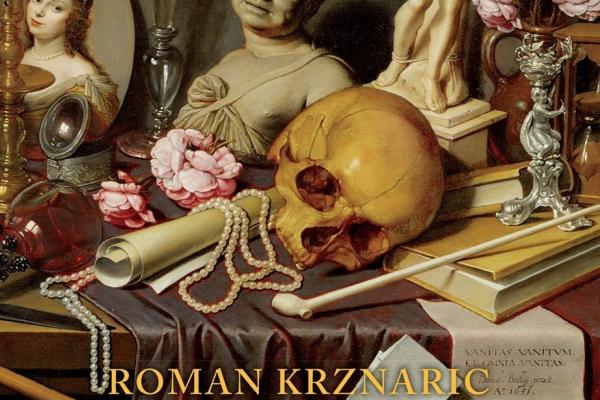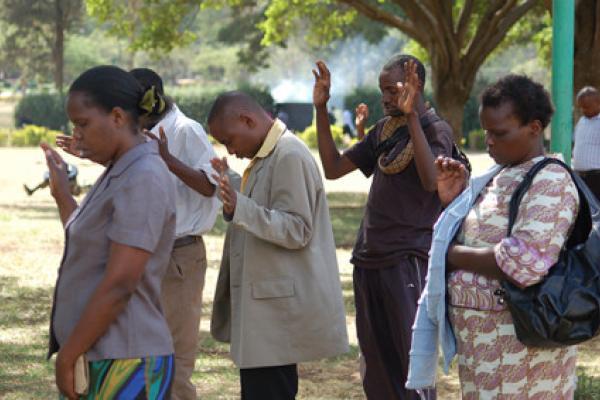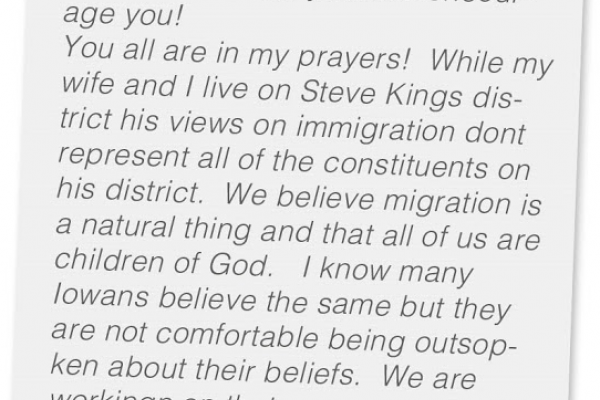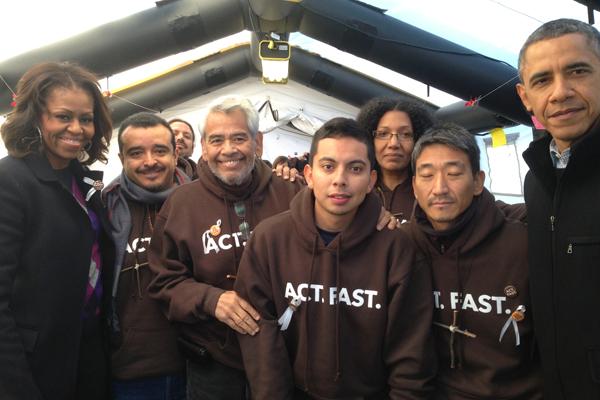Desmond Tutu tells a story of when he was nine or 10 years old and he stood with his mother outside a building where she worked as a cook. This was 1940s apartheid South Africa, where black people were considered inferior in all respects. A lanky, white Anglican priest named Trevor Huddleston walked by in a long cassock, saw his mother, and doffed his hat to her.
The white man would have been expected to ignore the black woman, who amounted to nothing in her society. With one simple gesture, he went out of his way to tell her that her society had it all wrong and that she was equally valued and loved.
That moment made a profound impression upon Tutu, who wrote about it in his book, Made For Goodness.
What seem like very small, ordinary acts often have immense and lasting impacts. And every interaction that we have — even with a stranger on the street — can leave some sort of mark, either helpful or hurtful.
I was driving home from work a few weeks ago and found myself suffering from a little radio ADD. I flipped through every station on my programmed radio console with a sense of emptiness. Each station was playing what sounded like the same song with the same beat over and over again.
How can I find meaning in my drive home with the drudgery of the same bland music?
I finally gave up on my search for meaning and stopped on my favorite top-40 radio station, Chicago’s 101.9 The Mix. And there it was. Someone was singing these words:
I will love you unconditionally
There is no fear now
Let go and just be free
I will love you unconditionally.
“Wait a minute,” I thought. “The Mix is playing a song about God?!? Had The Mix been taken over by a Christian radio station? Had K-Love or Moody Radio joined messianic forces with Rafael and Ted Cruz to enforce Christian Dominionism all over American radio?”
Today’s coffee culture has an incredibly sophisticated vocabulary. Do you want a cappuccino, an espresso, a skinny latte or maybe an iced caramel macchiato? The ancient Greeks were just as sophisticated in the way they talked about love, recognizing six different varieties. They would have been shocked by our crudeness in using a single word both to whisper “l love you” over a candlelit meal and to casually sign an email “lots of love.”
So what were the six loves known to the Greeks? And how can they inspire us to move beyond our current addiction to romantic love, which has 94 percent of young people hoping — but often failing — to find a unique soul mate who can satisfy all their loving needs?
Two of the world’s great libraries — the Vatican Library in Rome and the Bodleian Library at Oxford University — have scanned and loaded the first of 1.5 million pages of ancient Hebrew, Greek, and early Christian manuscripts online Tuesday.
The project brings rare and priceless religious and cultural collections to a global audience for the first time in history.
The website is the first step in a four-year project and it includes the Bodleian’s 1455 Gutenberg Bible — one of only 50 surviving copies.
The $3.3 million project is funded by the Polonsky Foundation, which aims to democratize access to information. Leonard S. Polonsky is chairman of Hansard Global PLC, an international financial services company.
At prayer healing services in some Pentecostal churches, pastors invite people infected with HIV to come forward for a public healing, after which they burn the person’s anti-retroviral medications and declare the person cured.
The “cure” is not free, and some people say they shell out their life savings to receive a miracle blessing and quit taking the drugs.
“I believe people can be healed of all kinds of sickness, including HIV, through prayers,” said Pastor Joseph Maina of Agmo Prayer Mountain, a Pentecostal church on the outskirts of Nairobi. “We usually guide them. We don’t ask for money, but we ask them to leave some seed money that they please.”
But the controversial ceremonies are raising red flags as believers’ conditions worsen, and a debate has opened over whether science or religion should take the lead in the fight against the AIDS epidemic.
As the least productive Congress in history begins to wind down its first legislative session, immigration reform is coming to a boil.
It’s already been 160 days since the Senate passed its immigration bill and the House already has 191 co-sponsors on its bipartisan bill. Still, House Republicans have failed to take the next step and have only voted on one immigration provision so far this year — Steve King’s (R-Iowa) amendment to defund DACA and deport DREAMers.
And with King (most famous for saying young immigrants have “calves the size of cantaloupes” from lifting 75 pound bags of drugs across the border) at the helm for Republicans on immigration, it’s no wonder that they’re getting nowhere on immigration.
But the tragic irony of all of this is that King’s own constituents (myself included) overwhelmingly support immigration reform. Recent polling by The American Action Network, a conservative outside group, shows that 79 percent of voters in his district support the tenets in the Senate Gang of Eight bill. Despite that popularity, King and his shrinking list of allies in the House have kept Speaker John Boehner (R-Ohio) from addressing the moral crisis afflicting millions of workers, children, mothers, and fathers.
Sapped by three weeks of a water-only diet, three activists for immigration reform ended their fasts Tuesday with a morsel of bread blessed by a priest and “passed the fast on” to others who hope to keep attention focused on the issue.
“You have truly put your faith in action,” said retired Washington Archbishop Theodore McCarrick, one in a small crowd of political and clerical dignitaries who came to the National Mall to praise those who have gone without food in a bid to pressure Republican House leaders to pass an immigration reform bill.
Also seated alongside the quiet and wan fasters: House Minority Leader Nancy Pelosi; the Rev. Bernice King, the daughter of the Rev. Martin Luther King Jr.; Secretary of Labor Tom Perez; Rep. John Lewis, D-Ga.; and the Rev. Al Sharpton.
In recent weeks, the fasters have attracted high-profile visitors, including President Obama, first lady Michelle Obama, and Vice President Joe Biden, to the heated tents where the fasters have been living on the National Mall.





